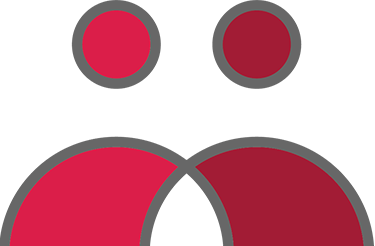Health Insurance Terms
Appeal: A request for your health insurance company or the Health Insurance Marketplace® to review a decision that denies a benefit or payment.
Benefit year: A year of benefits coverage under an individual health insurance plan. The benefit
year for plans generally begins January 1 of each year and ends December 31 of the
same year.
Claim: A request for payment that you or your health care provider submits to your health
insurer when you get items or services you think are covered.
Coinsurance: Your share of the cost for a covered health care service, usually calculated as a
percentage (like 20%) of the allowed amount for the service.
Copayment: An amount you pay as your share of the cost for a medical service or item, like a
doctor's visit.
Coordination of benefits: A way to figure out who pays first when 2 or more health insurance plans are responsible
for paying the same medical claim.
Deductible: The amount you owe for covered health care services before your health insurance
or plan begins to pay.
Explanation of Benefits: A statement from your health insurance plan describing what costs it will cover for
medical care or products you’ve received. The EOB is generated when your provider
submits a claim for the services you received. The insurance company sends you EOBs
to help make clear the cost of the care you received, any money you saved by visiting
in-network providers, and any out-of-pocket medical expenses you’ll be responsible
for.
Flexible Spending Account (FSA): An arrangement through your employer that lets you pay for many out-of-pocket medical
expenses with tax-free dollars. Allowed expenses generally include insurance copayments
and deductibles, qualified prescription drugs, insulin, and medical devices.
Global Referral: An authorization indicating that a patient’s primary care provider (PCP) has approved
a contracted BCN specialist to perform necessary services to diagnose and treat a
member in the office, with the exception of services that require benefit or clinical
review.
Premium: The amount you pay for your health insurance or plan each month.
Health Reimbursement Arrangement (HRA): Health Reimbursement Arrangements (HRAs) are employer-funded group health plans from
which employees are reimbursed tax-free for qualified medical expenses up to a fixed
dollar amount per year. Unused amounts may be rolled over to be used in subsequent
years. The employer funds and owns the arrangement. Health Reimbursement Arrangements
are sometimes called Health Reimbursement Accounts.
Health Savings Account (HSA): A type of savings account that lets you set aside money on a pre-tax basis to pay
for qualified medical expenses.
Network: The doctors, hospitals, and suppliers your health insurer has contracted with to
deliver health care services to their members.
Primary Care Provider (PCP): a physician, nurse practitioner, clinical nurse specialist, or physician assistant
who provides, coordinates, or helps a patient access a range of health care services.
Prior authorization: Approval from a health plan that may be required before an appointment or filling
a prescription for the service or prescription to be covered by your plan.
Referral: A written order from your primary care provider (PCP) for you to see a specialist
or get certain medical services. In many Health Maintenance Organizations (HMOs),
you need to get a referral before you can get medical care from anyone except your
primary care doctor. If you don’t get a referral first, the plan may not pay for the
services.
Types of Plans
Exclusive Provider Organization (EPO): A managed care plan where services are covered only if you use doctors, specialists,
or hospitals in the plan’s network (except in an emergency).
Health Maintenance Organization (HMO): A type of health insurance plan that usually limits coverage to care from doctors
who work for or contract with the HMO. It generally won't cover out-of-network care
except in an emergency. An HMO may require you to live or work in its service area
to be eligible for coverage. HMOs often provide integrated care and focus on prevention
and wellness.
Point of Service (POS): A type of plan where you pay less if you use doctors, hospitals, and other health
care providers that belong to the plan’s network. POS plans require you to get a referral
from your primary care doctor in order to see a specialist.
Preferred Provider Organization (PPO): A type of health plan where you pay less if you use providers in the plan’s network.
You can use doctors, hospitals, and providers outside of the network without a referral
for an additional cost.


